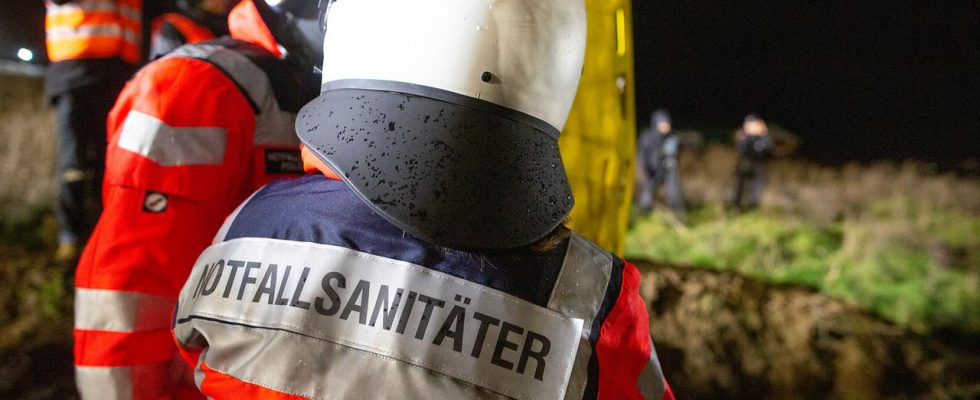exclusive
Emergency paramedics are the first responders on site and save lives. But their powers are limited – with big differences nationwide, as research by Report Mainz show. Experts are calling for uniform standards.
Raphael Bronstein is an emergency paramedic in Munich. He is only allowed to give patients a few medications without calling for an emergency doctor. Like a few weeks ago when he was called to see a patient with a severe gastrointestinal bleed. He found the patient pale, cold-sweaty and in the beginnings of shock. In addition, he was a serious hemophiliac.
“The whole thing was a life-threatening situation, it has to be said very clearly,” says the emergency paramedic. The patient also had an emergency card in his wallet – a written recommendation to administer a certain medication in an emergency: tranexamic acid, an agent to reduce bleeding, said Bronstein.
fear of labor law Consequences
The emergency paramedic says he learned how to administer transexamic acid during his training. Nevertheless, he had to think about it, because in Bavaria emergency paramedics are only allowed to give this medication if they have undergone training measures that go well beyond the regular scope of training and further education. No one has yet been able to clearly explain to him whether his numerous training courses are sufficient.
Having to ask yourself the question at all is a problem, he says: “Actually, there are situations in which you should think less about what you are allowed to do and more about what the patient needs.” Bronstein decided to give the drug. Other colleagues would probably have acted differently in such situations, he said. For fear of labor law consequences.
Nationwide patchwork of regulations
The Emergency Paramedics Act has been in effect since 2014. This also allows emergency paramedics to administer medication independently “in order to avert danger to life or significant consequential damage”. Assuming they learned it in training. For this purpose, training was standardized nationwide.
But the problems still exist, experts criticize. Because the rescue service is still regulated by 16 individual state laws. Most of the time, districts and cities are responsible for the emergency services. Almost everywhere there is a so-called medical director of the emergency service for each emergency service district. This also determines, among other things, which medications emergency paramedics are allowed to give.
Differences in Medication administration
A non-representative survey by… shows how big the differences are across Germany Report Mainz. On request in 299 emergency service areas nationwide ARD-Politics magazine received 120 replies.
On average in the survey, 17 medications are approved for administration by emergency paramedics without having to call an emergency doctor. However, the numbers are far apart. In the emergency service district of North Frisia, for example, there are 38 medications. In Bavaria, emergency paramedics are only allowed to give four medications nationwide without calling for an emergency doctor. In Bottrop in North Rhine-Westphalia it is even just a single drug.
Hiding medications under the driver’s seat
In interviews, emergency paramedics from all over Germany explain what this means in practice Report Mainz. The descriptions range from medicines secretly hidden under the driver’s seat to self-procured materials for emergency care worth several hundred euros to emergency paramedics who refuse to work in individual districts because important equipment is missing.
Marco König, chairman of the German professional association for emergency services, criticizes in an interview Report Mainz: “The medical director of emergency services system, as it is now, has failed.” He speaks of “class arrogance” and criticizes the fact that the skills of emergency paramedics are still being questioned. He calls for more uniform standards.
Expert calls for uniform standards
Health economist Prof. Christopher Niehues from the Münster University of Applied Sciences also advocates for nationwide minimum standards that are mandatory everywhere. “For some, uniform federal guidelines will become uncomfortable. But we must not let a small part determine that emergency care remains so heterogeneous.”
Prof. Alex Lechleuthner, Chairman of the Federal Association of Medical Directors for the Emergency Services Germany, warns against absolute synchronization, but advocates uniform requirements across the country. Federal Health Minister Karl Lauterbach recently announced reforms in the emergency services. There are various proposals that the federal and state governments are currently negotiating.

